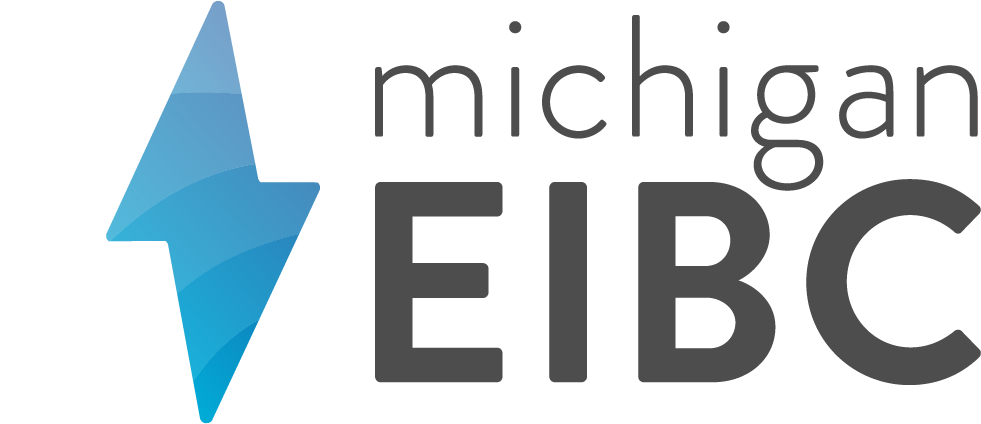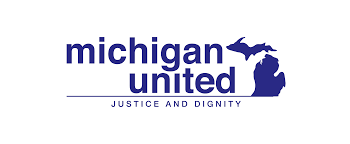
Bill package would address power affordability and reliability while making Michigan competitive for federal grants
Lansing, MI – In advance of the state legislature’s return to Lansing, a group of clean energy advocates, industry representatives, environmental justice advocates, and legislators are urging lawmakers to advance the “MI Power for All” plan — a suite of bills filed previously this session that would accelerate solar and storage adoption across the state, ensuring that historically underserved Michigan families are able to reap the economic and environmental benefits.
“The country is already rapidly moving toward an economy powered by clean, low-cost energy, but now we need systems in place to make sure that nobody is left behind in this transition,” said Representative Donavan McKinney (District 14). “Passing the MI Power for All plan will be a huge step forward in advancing renewable energy solutions that will bring everyone equitable access to a clean and sustainable future.”
For context on today's event, check out the video of the press conference.
The Michigan Legislature will reconvene in early September, just prior to the September 26 deadline to apply for federal grants through the Environmental Protection Agency’s Solar for All competition. The EPA will award up to 60 grants to states, Tribal governments, municipalities, and nonprofits to fund the expansion of solar projects in low-income communities. Last month, the Whitmer Administration filed a notice of intent to apply for a portion of the $7 billion available in federal funding from the program.
“With billions of dollars on the table, Michigan has an excellent opportunity to put policies in place that will make the state more competitive for Inflation Reduction Act funds. By making it easier to get more solar projects online and placed in communities that need them the most, the MI Power for All plan will help ensure Michigan can maximize federal investments, build a more resilient grid, and usher in a renewable economy,” said Jenna Warmuth, Midwest Regional Director for Vote Solar. “We know that Michigan’s clean energy future is worth investing in; now, we need our lawmakers to prove that they know it, too.”
The bill package includes Senate Bills 362 and 363, which would remove Michigan’s controversial and widely-criticized one percent cap on distributed energy resources like solar. First enacted in 2008, the one percent limit — one of the most restrictive in the country — has drawn frustration from the clean energy industry, climate activists, and lawmakers across the political spectrum. In May 2023, Indiana Michigan (I&M) Power, a utility providing electric service to the Southwest corner of Michigan, became the most recent utility in the state to hit its distributed generation cap and begin turning away prospective customers.
“Eliminating the unnecessary, arbitrary cap on rooftop solar is long overdue,” said Dr. Laura Sherman, President of the Michigan Energy Innovation Business Council. “Restricting solar growth – especially as the cost of solar continues to plummet and investment in solar projects begins to skyrocket thanks to the Inflation Reduction Act – needlessly stifles the state’s clean energy workforce and creates roadblocks for homeowners facing outage after outage who want to generate their own power.”
Beyond eliminating the distributed generation cap, the MI Power for All package would remove additional barriers to solar adoption for low- and moderate-income Michiganders, including upfront costs and restrictions on housing type. House Bill 4840 would establish cash rebates for customers who install solar and battery storage systems, with incentives doubled for income-qualified households. Through the incentives outlined in the bill, a low-income family could save nearly half the cost of a typical solar installation.
“The Federal government is providing generous assistance to make solar possible for people at all income levels; Michigan families deserve to access this assistance. We deserve the freedom to generate and take more control of our power. These laws remove the obstacles to that freedom,” said Angana Shah, Policy Manager for Michigan United.
"Soulardarity actively promotes broader rooftop solar adoption through our Grow Solar Highland Park - Detroit program. Strengthening state-level policies centered around accessibility will equip organizations like ours with additional means to advance our communities, “said Rafael Mojica, Program Director for Soulardarity.
An accompanying bill, House Bill 4839, would require the Michigan Public Service Commission to establish rules for connecting home storage systems to the energy grid. This would create what’s known as a “virtual power plant,” allowing excess energy to keep the lights on during severe weather and high-demand periods and providing credits to customers with storage for that service. Michigan’s monopoly utilities, DTE Energy and Consumers Energy, have become notorious for frequent and prolonged outages; earlier this year, widespread blackouts made headlines across the state and sparked the creation of a House Energy Reliability, Resilience, and Accountability Task Force. Even this summer, Michiganders have experienced life-threatening conditions due to heat and storm-related power outages.
“Michiganders need reliable energy and affordable rates, but right now we don’t have either. Michigan’s rates are some of the highest in the nation, and U.P. families pay an average of 30% more compared to the rest of the state,” said Representative Jenn Hill (District 109). “I came to Lansing to do something about it. Enacting legislation to deploy virtual power plants and resource aggregation will increase our grid’s reliability while lowering costs, and that’s why I’m so focused on getting these bills signed into law.”
The final bills in the package are the bipartisan House Bill 4464/Senate Bill 152 and House Bill 4465/Senate Bill 153, which would allow communities to create and finance community solar projects up to five megawatts. Community solar expands access to affordable solar by allowing all utility customers to subscribe to a solar array and receive direct credits off their utility bills for renewable energy generated. Community solar programs are often especially valuable to renters, those in shared housing, and individuals whose housing will not support an individual solar system. Currently, twenty-two states and the District of Columbia have legislation on the books to enable community solar.
“Michigan residents, not monopoly utilities, should be making the decisions about how our electricity is generated,” said Senator Jeff Irwin (District 15). “Getting these bills across the finish line will shift power back to the people where it belongs, while simultaneously establishing Michigan as a leader in the equitable transition to renewable energy.”
“Community solar is a tool for the people of Michigan to build reliable and affordable clean energy now. Once established, the program will leverage billions in federal funding for clean energy, environmental justice, and green jobs,” said Representative Rachel Hood (District 81).
###















